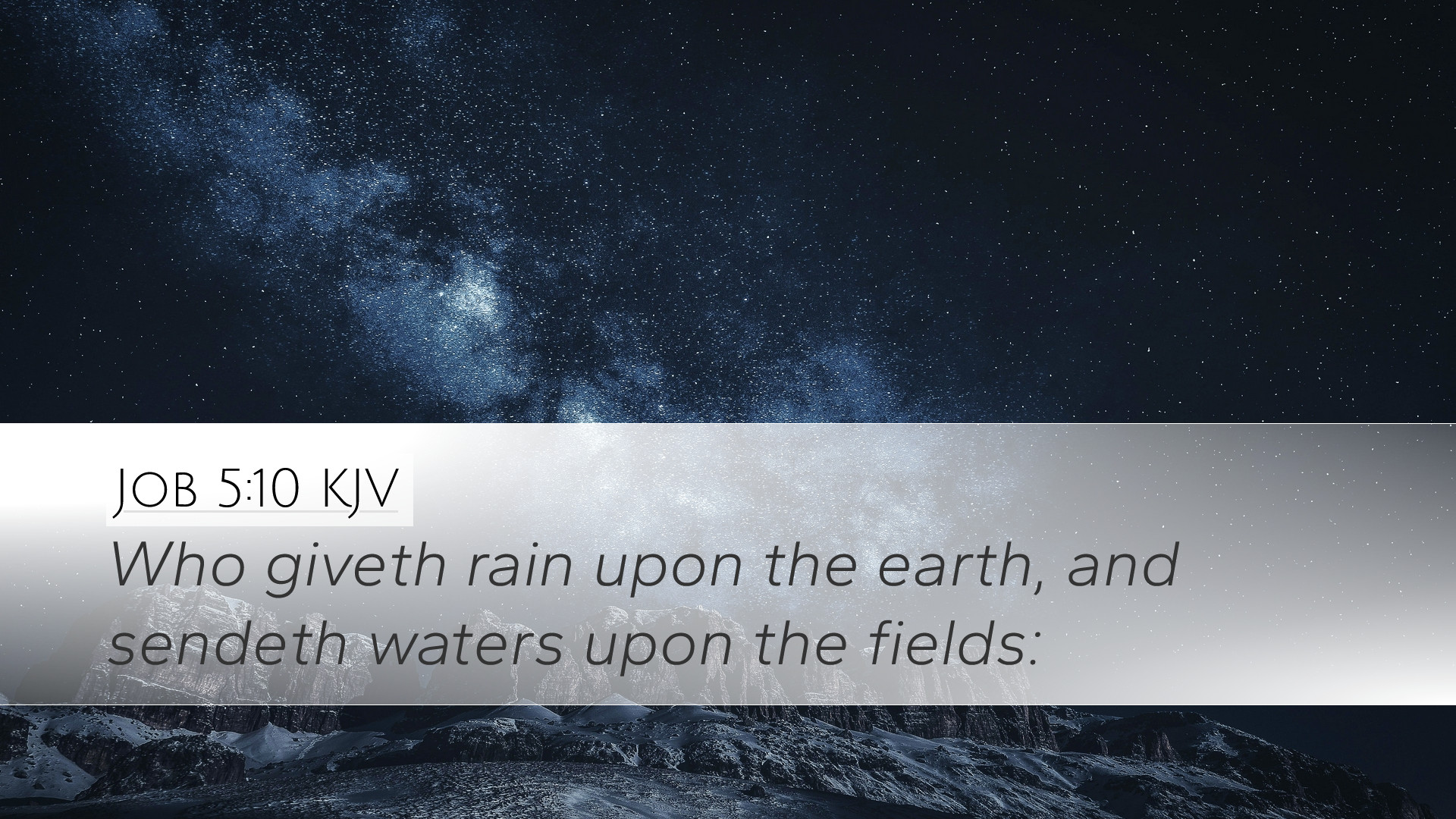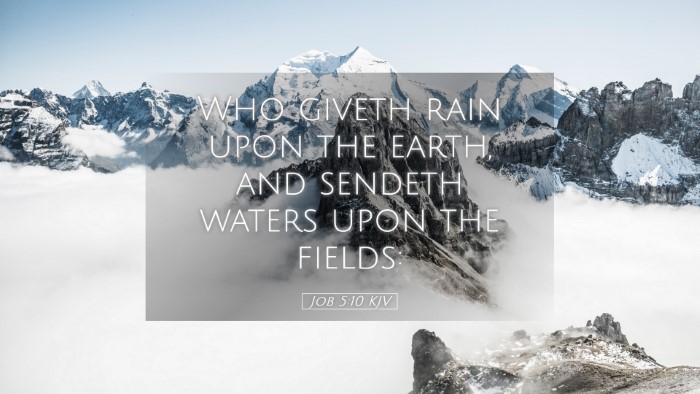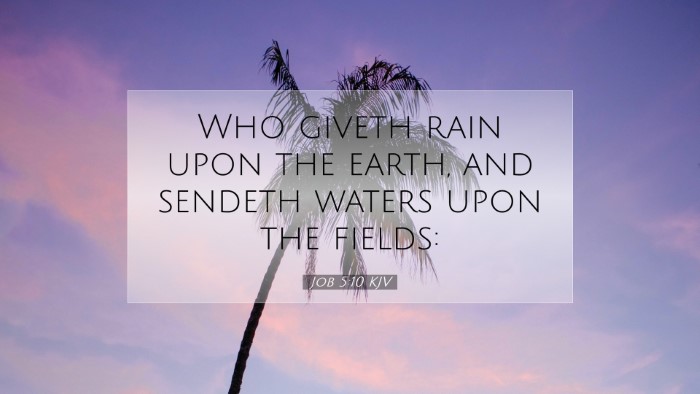Old Testament
Genesis Exodus Leviticus Numbers Deuteronomy Joshua Judges Ruth 1 Samuel 2 Samuel 1 Kings 2 Kings 1 Chronicles 2 Chronicles Ezra Nehemiah Esther Job Psalms Proverbs Ecclesiastes Song of Solomon Isaiah Jeremiah Lamentations Ezekiel Daniel Hosea Joel Amos Obadiah Jonah Micah Nahum Habakkuk Zephaniah Haggai Zechariah MalachiJob 5:10
Job 5:10 KJV
Who giveth rain upon the earth, and sendeth waters upon the fields:
Job 5:10 Bible Commentary
Commentary on Job 5:10
Job 5:10 states: "Who gives rain on the earth, and sends water on the fields." This verse holds profound significance as it touches upon God's providential care and His sovereign control over nature. Through the exploration of this verse, we can glean insights from various public domain commentators, enriching our understanding of God's character and His relationship with creation.
Divine Sovereignty Over Nature
According to Matthew Henry, this verse illustrates God's sovereignty, particularly in His governance of natural phenomena like rain and agriculture. He emphasizes that rain is a gift from God, which He bestows at the proper time, thereby ensuring life and sustenance on earth. This divine action exemplifies God's faithfulness and His nurturing role in creation.
Theological Significance of Rain
From the perspective of Albert Barnes, the mention of rain symbolizes not only physical sustenance but also spiritual nourishment. Just as the earth relies on rain for growth and productivity, so too do human beings rely on God's grace for spiritual vitality. Barnes connects this physical reality to the broader theme of dependence on divine provision, reminding readers of the importance of gratitude and trust in the Lord's benevolence.
Human Response to Divine Provision
Adam Clarke points out that while rain is freely given, the acknowledgment of this gift requires a human response. The beauty of God's providence is best appreciated when individuals recognize the source of their blessings. Clarke encourages readers to see God's provision as an invitation to a deeper relationship with Him, fostering an attitude of thankfulness and reliance on God's continuous care.
God as the Source of All Blessings
Reflecting further on this verse, Henry notes the contrast between God's generosity and human ingratitude. He prompts us to ponder the implications of our dependence on God, emphasizing that the act of giving rain is a testament to God's readiness to bless His creation. In this light, Job 5:10 can be seen as a call to humility and recognition of God's ongoing involvement in the world.
The Universality of God's Care
Moreover, Barnes highlights that God's care is not limited to a particular group or nation; rather, it is universal. The rain that nourishes the fields affects all creation, underscoring a key theological principle: God's grace extends to all, regardless of their status or position in society. This universality invites deeper reflection on the nature of God's love and justice.
Encouragement Through Affliction
In the context of Job's sufferings, Clarke reminds us that the acknowledgment of God's power over natural elements should comfort believers amidst adversity. Job, hearing Eliphaz's words, is reminded of God's omnipotent nature. Even in pain, there is a semblance of hope through the recognition that God remains in control and continues to provide for His creation, including the sustenance for Job’s spirit.
Conclusion: A Call to Faith
As we conclude this reflection on Job 5:10, we realize that the verse ultimately calls believers to faith and trust in God's providential care. Whether facing trials or enjoying blessings, the acknowledgment of God's provision through nature is an invitation to worship and a reminder of His unchanging nature. To live with an awareness of God's role as the giver of rain—and by extension, the giver of life—is not only to recognize His sovereignty but also to respond with gratitude and faithfulness.
Summary Insights
- Sovereign Provision: God is the source of rain and sustenance, showcasing His care over creation.
- Spiritual Nourishment: Physical rain can symbolize the spiritual sustenance that God provides.
- Human Response: Acknowledgment of God's gifts requires a grateful heart and an active response in faith.
- Universal Care: God's blessings are extended to all, emphasizing His impartial love and justice.
- Hope in Suffering: Even in trials, believers can find comfort in God's sovereignty and ongoing provision.
- Faithful Living: The recognition of God's gifts is a call to live with gratitude and faithfulness.


